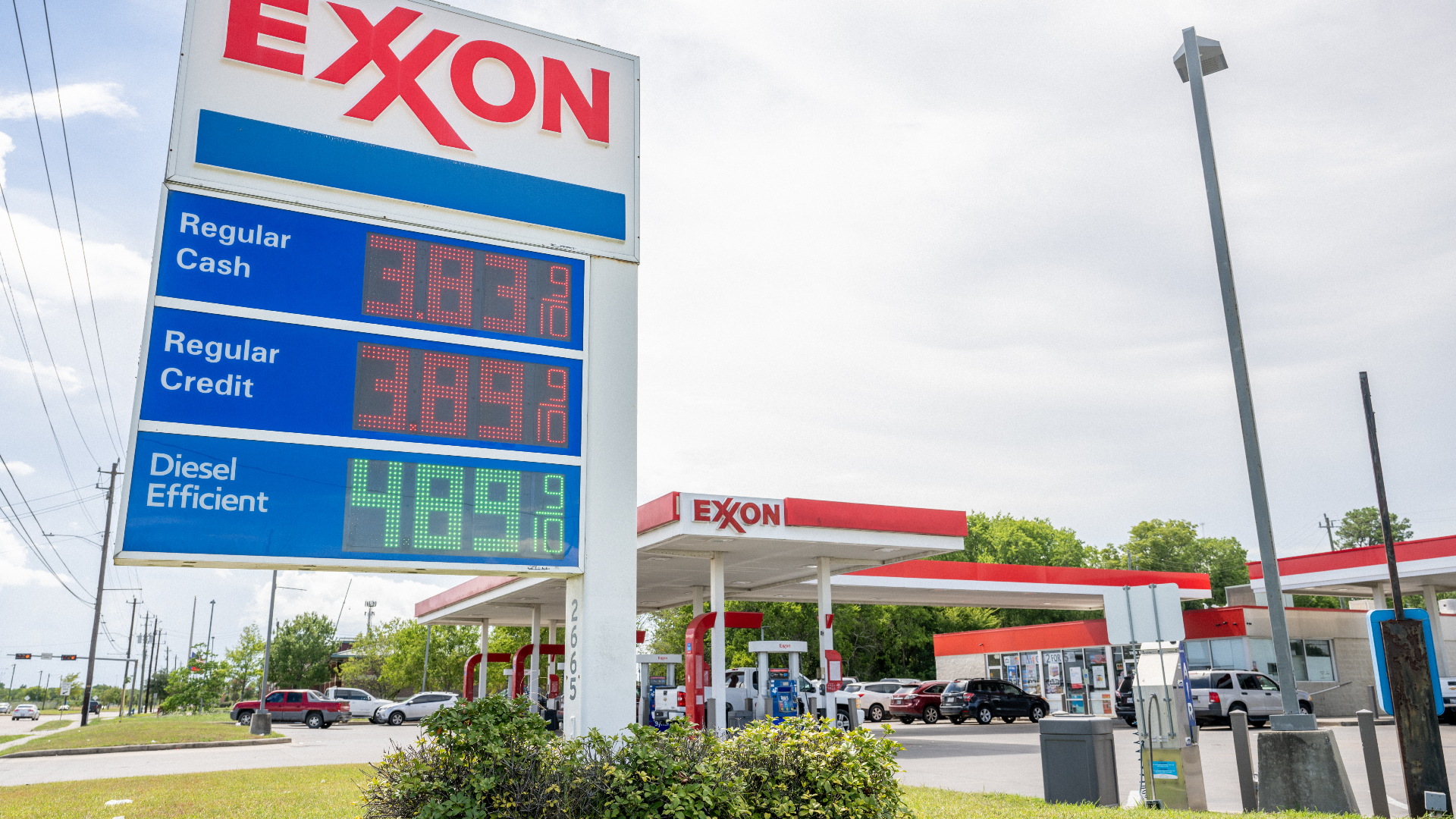Don't Blame Big Oil for Record Profits, Blame Wall Street
Former regulator warns that Wall Street speculators have been driving up the price of gas

Record oil-company profits being reported this week are due at least in part to Wall Street speculators influencing oil prices, a former financial regulator tells TYT.
TYT reported back in May that a former official at the Commodity Futures and Exchange Commission (CFTC) discovered that a loophole in swaps regulations was letting Wall Street gamble on gas and other commodity prices in such volume that it was amplifying the impact of inflationary influences such as the Ukraine war.
This week, ExxonMobil, Chevron, and Shell all reported staggering third-quarter profits. ExxonMobil profits alone hit a record $18.7 billion.
Pres. Joe Biden and other Democrats have blamed high gas prices on price gouging by the big oil companies. Republicans have said it’s because oil companies need to drill more. Neither party, however, has offered an explanation of why high commodity prices are a global phenomenon.
As TYT noted back in May, oil companies are reaping huge benefits from high gas prices, but it’s Wall Street driving those prices – and Wall Street’s reach is global.
Former CFTC Dir. of Trading and Markets Michael Greenberger, who now runs the University of Maryland Center for Health and Homeland Security, said in a private call with financial advocacy organizations in June that Democrats could lower gas prices as much as 25% almost instantly just by putting Wall Street on notice with a few words.
It was Greenberger who wrote in a 2018 academic paper that the loophole – created by Wall Street and letting the world’s biggest financial firms escape swaps regulation – posed a global economic threat. The way it worked was that four firms – Citigroup, Bank of America, Goldman Sachs, and JPMorgan Chase – realized they could set up paper companies overseas and then file their swaps trades through those companies, outside U.S. jurisdiction, their trade group argued.
In the case of commodities, the swaps are essentially bets on what will happen to commodity prices. When the volume of those bets starts to dwarf the actual, genuine sales of barrels of oil, those swaps bets start to influence the real-world prices, Greenberger says. And a growing number of lawmakers and advocates agree.
After a few years of this, those unregulated swaps trades were estimated to total in the hundreds of trillions of dollars. The good news is, Greenberger says Pres. Joe Biden and other Democratic leaders could make the banks back off with nothing more than a sentence or two acknowledging the issue.
“The banks run for cover with even a sustained whiff of regulatory — and perhaps criminal investigatory — seriousness,” Greenberger said in May. After TYT revealed in June that advocacy groups and a handful of Democrats – including Reps. Ro Khanna (D-CA) and Paul Tonko (D-NY) – were looking into the issue, gas prices began to decline.
After ExxonMobil and companies reported their third-quarter profits, TYT asked Greenberger whether those profits were “being driven by Wall Street swaps trades via your loophole.”
He responded: “Yes.”
His claim is borne out by the fact that gas prices have fallen since the Organization of the Petroleum Exporting Countries (OPEC) announced production cuts. If supply and demand were driving prices, the cut in supply should have led to what most market observers assumed were coming: significant price runups.
Greenberger’s predictive record includes other successes, as well. He sounded an early clarion call against another regulatory gap – the Enron Loophole – that let Wall Street drive up gas prices back in 2008. After gas hit $4 a gallon then, Greenberger predicted that closing the Enron Loophole would knock as much as 25% off the price.
On Oct. 6, as everyone else braced for price spikes thanks to OPEC, Greenberger told TYT, “I don’t think this is going to be as impactful as they think it is.”
He said he thought both OPEC and Wall Street speculators had incentives not to drive prices too high. They’ve now fallen for ten straight days.
“It goes up to a certain point,” Greenberger said, “and then everybody gets out of the contracts.”
Tyson Slocum, Public Citizen’s Energy Program director, told TYT, “There’s some crazy stuff going on in derivative markets and a lot of it seems to be driven by things like war and climate change; but others are flaws in oversight and gaps in design, things that Greenberger pointed out and I pointed out.”
According to Greenberger, Biden and other top Democrats haven’t sought to fight inflation by speaking publicly about unregulated swaps because few if any people on Capitol Hill understand the dynamics between swaps and spot prices.
Slocum adds another issue regarding the absence on this issue of the CFTC, which was originally formed to regulate sales of commodity future, not high-tech derivates based on commodities. Slocum says, “Part of the problem with the CFTC is that it still is an ag dominated, congressional focus instead of financial markets, which is what it really is.”
Slocum, who sits on two CFTC advisory committees, said that “We continue to have radio silence from [CFTC] Chairman [Rostin] Benham.”
A spokesperson for the CFTC declined to comment.
Jonathan Larsen is TYT’s managing editor. You can find him on Twitter @JTLarsen.
